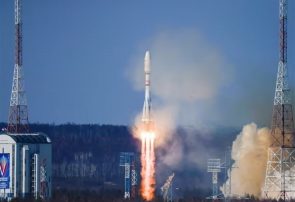TEHRAN (Iran News) Iranian satellites Kowsar and Hodhod were sent into space as part of a payload carried by the Russian Soyuz launcher, which delivered 53 satellites to orbit.
This launch represents a significant advancement for Iran, highlighting the first satellite manufacturing and launching attempt from its private space sector.
The Kowsar satellite, weighing 30 kilograms, is a high-resolution sensing satellite designed for applications in agriculture, natural resource management, environmental monitoring, and disaster response.
With a resolution capability of 3.45 meters, Kowsar surpasses Iran’s goal of producing satellites with 10-meter ground sample distance (GSD) cameras by 2025.
Kowsar has a lifespan of 3.5 years in orbit, positioned at an altitude of 500 kilometers, and is capable of capturing six frames per second over a 15-kilometer range.
Its imaging is achieved using an RGB camera with 3.45-meter resolution and an NIR camera with 5.5-meter resolution, supported by a maximum platform weight of 35 kilograms.
The satellite’s orbital period is 5,677 seconds, with pointing and stability accuracies of 1 degree and 0.05 degrees per second, respectively.
Power is sustained by its 44 watt-hour production capacity, and it consumes 29 watt-hours to operate its payloads.
Meanwhile, Hodhod serves as a small communications satellite intended to create satellite-based communication networks and enhance Internet of Things (IoT) connectivity.
Targeted at regions with limited terrestrial communication access, Hodhod offers communication solutions in remote and inaccessible areas.
Built to the CubeSat standard, the satellite operates in a 500-kilometer orbit and supports precision agriculture, transportation, logistics, and environmental monitoring. Its primary mission focuses on expanding IoT capabilities.
- source : tasnim





























